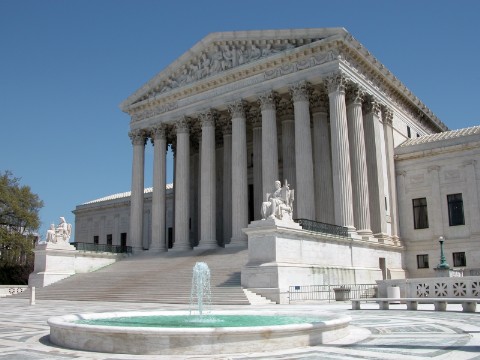Amanda McKinzie, a 2012 Judge K.K. Legett Fellow at the Washington Legal Foundation and a student at Texas Tech School of Law.
From the day Congress amended the Foreign Intelligence Surveillance Act of 1978 (FISA) to allow the communications of non-United States persons to be intercepted upon approval by the United States Foreign Intelligence Surveillance Court (FISC), parties have challenged the legislation’s constitutionality. Once such case, Clapper v. Amnesty International USA, recently reached the U.S. Supreme Court. The Court granted the federal government’s petition for certiorari on Monday, May 21, and will decide during the October 2012 term whether those challenging the law have Article III standing to sue.
The amendments to FISA do not permit the government to intercept communications of United States citizens to be intercepted. Despite this prohibition, the Clapper plaintiffs – U.S. attorneys, journalists, and labor, legal, media, and human rights organizations – claim they are fearful of being monitored. They assert that because they frequently communicate with potential international targets, there is a high probability that information they exchange will be intercepted. The plaintiffs further claim that based on this “well-founded fear,” they have expended much time, effort, and money in maintaining the confidentiality of their communications from potential interception. Accordingly, they argue that the future injury of interception coupled with their present expenditures provide standing to sue.
The United States District Court for the Southern District of New York decided that the plaintiffs did not have standing to sue because the incurred costs resulted from a speculative, abstract fear, and it granted the defendants’ motion for summary judgment. On appeal, however, the U.S. Court of Appeals for the Second Circuit reversed and subsequently refused to rehear the case by a 6-6 vote. The government filed a petition for certiorari, and the Washington Legal Foundation (WLF) filed a brief supporting cert on behalf of itself and three former Attorneys General of the United, Dick Thornburgh, William Barr, and Edwin Meese. As mentioned previously, the Court has agreed to review the case, and WLF will file an amicus brief on the merits.
In our brief supporting certiorari, WLF argued that review should be granted not only because the respondents lack standing but also because matters of national security are at issue. We argued the Second Circuit incorrectly held that the alleged injuries of the fear of surveillance and the resulting expenditures satisfied the injury requirement of Article III standing. The Second Circuit misinterpreted Court’s case law requiring that the injury be imminent, not simply reasonable when it reasoned that if the fear of future interceptions is reasonable, then the parties have standing.
Furthermore, the claimed expenditures also fail to satisfy the injury element because they are not fairly traceable to an actual injury. Holding otherwise would allow plaintiffs to conjure standing by making a purchase in light of a “reasonable” fear. Such a result is inconsistent with the Court’s standing precedent. Thus, we argue, the respondents have no standing to challenge the constitutionality of FISA.

